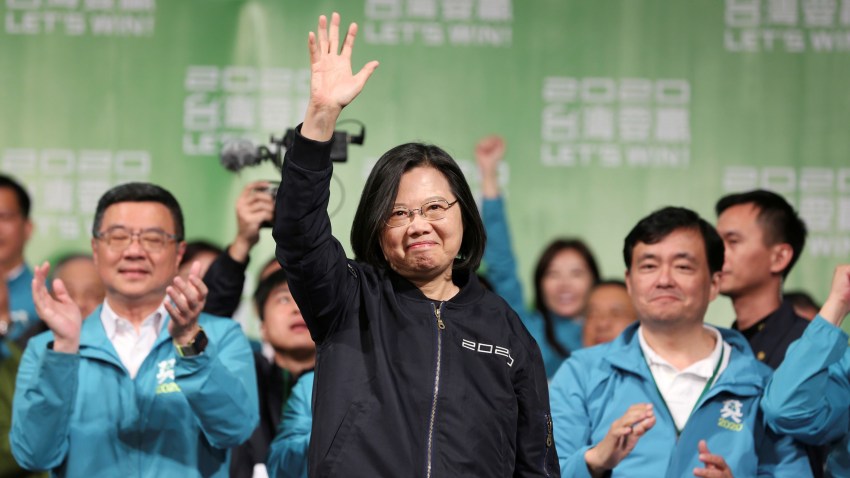During the Chinese Communist Party’s 20th Party Congress last October, some observers were watching closely to see if Beijing might use the gathering to adjust its Taiwan policy in order to ease the tensions that have characterized relations since the election of President Tsai Ing-wen in 2016. Relations between Beijing and Taipei plummeted when, upon taking office, Tsai refused to accept Beijing’s preconditions for engagement—namely, the “1992 Consensus” and its core connotation that Taiwan and mainland China belong to “One China.” They have further deteriorated in the seven years since then.
Instead of any policy shift coming out of the congress, however, the Chinese leadership appears content to maintain its uncompromising approach toward the government in Taiwan, perhaps comforted by the defeat of Tsai’s ruling Democratic Progressive Party, or DPP, in local elections last fall. But Beijing now faces more obstacles to engaging directly with Taiwan’s opposition Kuomintang, or KMT, as well as more broadly with Taiwanese society than it did in 2018, the last time the DPP suffered a major defeat in local elections.
That means it will likely have to wait at least until 2024, when Taiwan holds its next presidential election, to try to repair cross-strait relations. Beijing is essentially wagering that Tsai’s successor will be more amenable to its terms, making it worth the wait.

